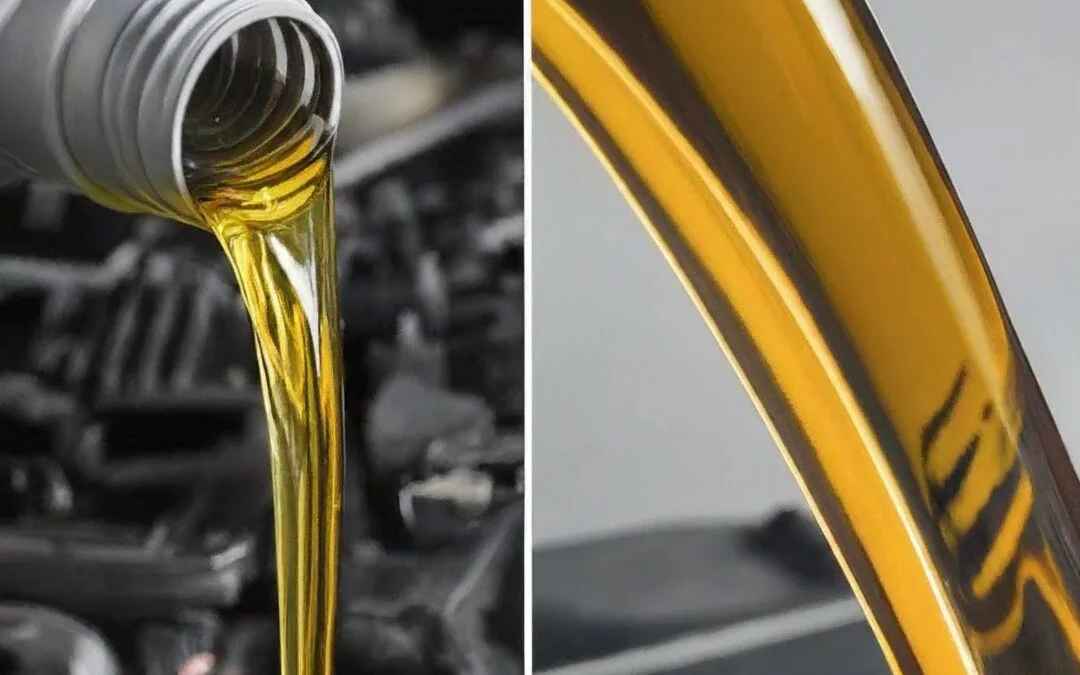Title: Unveiling the Truth: Can Motor Oil Really Wipe Out Weeds?
Introduction:
In the age-old battle against weeds, homeowners and gardeners are continually seeking innovative solutions. Amidst the plethora of advice circulating online, one intriguing yet controversial suggestion stands out: using motor oil to eradicate weeds. But before pouring this common automotive fluid onto your garden beds, it’s crucial to separate fact from fiction. In this blog, we delve deep into the question: Will motor oil truly kill weeds? Let’s navigate through the science, explore its effectiveness, weigh the risks, and uncover alternative methods for weed control. Join us on this journey to uncover the reality behind this unconventional approach and empower yourself with the knowledge to make informed decisions for your garden’s health and the environment.
Understanding Weeds and Their Control
Weeds, those persistent invaders of lawns, gardens, and agricultural fields, are more than just nuisances. They can disrupt ecosystems, compete with desirable plants for resources, and diminish the aesthetic appeal of landscapes. To effectively combat them, it’s crucial to understand their nature and employ appropriate control measures.
- Definition and Characteristics: Weeds are simply plants growing where they’re not wanted. They thrive in diverse environments, from urban sidewalks to remote wilderness areas. What sets them apart is their ability to adapt and spread rapidly, often outcompeting cultivated plants for sunlight, water, and nutrients. They come in various forms, including broadleaf plants like dandelions, grassy species like crabgrass, and even vines like bindweed.
- Lifecycle and Reproduction: To effectively control weeds, it’s essential to grasp their lifecycle and reproductive strategies. Many weeds reproduce prolifically through seeds, which can remain dormant in the soil for years, waiting for the right conditions to germinate. Others spread through rhizomes, stolons, or underground bulbs, allowing them to persist even after above-ground growth is removed.
- Environmental Impact: Beyond mere inconvenience, weeds can have significant ecological consequences. In natural ecosystems, invasive weeds can outcompete native plants, leading to habitat degradation and loss of biodiversity. In agricultural settings, they reduce crop yields and increase the need for herbicides and other management practices, impacting both farmers’ livelihoods and the environment.
- Traditional Control Methods: Historically, weed control relied heavily on mechanical methods such as hand-pulling, hoeing, and mowing. While effective for small-scale or localized infestations, these methods can be labor-intensive and impractical for larger areas. Chemical herbicides, another common approach, offer efficient weed suppression but raise concerns about environmental pollution and potential health risks.
- Integrated Weed Management: To address the challenges posed by weeds while minimizing environmental harm, many experts advocate for an integrated approach to weed management. This strategy combines various control tactics, including cultural practices (such as mulching and crop rotation), biological controls (such as introducing natural predators or pathogens), and targeted herbicide applications when necessary.
Future Directions: As concerns about environmental sustainability and pesticide resistance grow, there’s increasing interest in developing innovative weed control solutions. This includes exploring the potential of new technologies like precision agriculture, genetic engineering, and bioherbicides derived from natural sources.
Exploring the Use of Motor Oil on Weeds
The idea of using motor oil as a weed killer may seem unconventional, yet it has gained traction among some gardeners and homeowners seeking alternative methods for weed control. While its effectiveness is often touted anecdotally, it’s essential to delve deeper into the science behind this approach and understand its potential benefits and drawbacks.
- Origins and Concept: The concept of using motor oil to combat weeds likely stems from its ability to smother vegetation by forming a thick, impermeable layer on the soil surface. This layer can deprive weeds of sunlight, moisture, and oxygen, effectively inhibiting their growth and eventually causing them to perish.
- Mechanism of Action: When applied to weeds, motor oil creates a physical barrier that impedes their access to essential resources for growth. Additionally, the oily residue can interfere with the weed’s ability to photosynthesize and absorb nutrients, further weakening their vitality over time.
- Anecdotal Evidence and Popular Beliefs: Many proponents of using motor oil on weeds cite personal experiences or anecdotal evidence to support its efficacy. They often report visible results, such as wilting and death of targeted weeds shortly after application. However, it’s crucial to approach such claims with skepticism and seek scientific validation.
- Risks and Drawbacks: While motor oil may offer a seemingly simple and inexpensive weed control solution, it comes with its share of risks and drawbacks. Firstly, there are concerns about the environmental impact of introducing petroleum-based products into the soil and surrounding ecosystem. Motor oil runoff can contaminate waterways and harm aquatic life, posing a threat to overall environmental health. Additionally, prolonged exposure to motor oil residues may negatively affect soil structure and fertility, compromising the long-term viability of the treated area for plant growth.
- Safety Considerations: Beyond environmental concerns, there are also potential health risks associated with using motor oil as a weed killer. Direct contact with motor oil can irritate the skin and eyes, and inhalation of fumes may cause respiratory issues. Moreover, there’s a risk of accidental ingestion, especially in households with children or pets.
- Regulatory Compliance: It’s important to note that the use of motor oil for weed control may be subject to regulations and restrictions imposed by local authorities or environmental agencies. Before attempting this method, individuals should research and adhere to applicable laws and guidelines to avoid legal repercussions.
Debunking Myths and Misconceptions: Separating Fact from Fiction in Weed Control
In the realm of weed control, misinformation and myths abound, often leading well-intentioned gardeners astray. It’s crucial to separate fact from fiction to make informed decisions and effectively manage weed populations. Let’s debunk some common myths and misconceptions surrounding weed control:
- Myth: Pulling Weeds by Hand is Sufficient: While hand-pulling weeds can be effective for small infestations or in areas where herbicides aren’t feasible, it’s rarely a comprehensive solution. Many weeds have deep root systems or prolific seed production, making manual removal alone insufficient for long-term control. Combining hand-pulling with other management strategies is often necessary for optimal results.
- Myth: All Weeds Are Harmful and Must Be Eradicated: While some weeds can indeed pose significant challenges to agricultural productivity or ecological integrity, not all weeds are inherently harmful. Some may even provide ecological benefits, such as habitat for pollinators or soil stabilization. It’s essential to distinguish between invasive species that require control and native or beneficial weeds that can coexist harmoniously with cultivated plants.
- Myth: Chemical Herbicides Are the Only Effective Solution: Chemical herbicides have long been a go-to option for weed control due to their efficiency and convenience. However, relying solely on herbicides can lead to herbicide resistance, environmental pollution, and harm to non-target organisms. Integrated weed management approaches that incorporate cultural, mechanical, and biological controls offer more sustainable and environmentally friendly alternatives.
- Myth: Natural Products Are Always Safe and Effective: While natural or organic weed control products may appeal to those seeking eco-friendly alternatives, they’re not immune to limitations or potential risks. Some natural herbicides may be less effective or have narrower spectrums of activity compared to synthetic counterparts. Additionally, natural doesn’t always equate to safe—certain plant-derived compounds may still pose risks to humans, animals, or the environment if misused.
- Myth: Motor Oil is a Safe and Effective Weed Killer: The notion of using motor oil to smother weeds and prevent their growth has gained attention, but it’s fraught with risks and environmental concerns. While motor oil may temporarily suppress weed growth, it can also contaminate soil, harm beneficial organisms, and pose health hazards to humans and wildlife. Safer and more sustainable weed control methods should be explored instead.
- Myth: Weed Control Requires Constant Chemical Intervention: While chemical herbicides can be powerful tools for weed management, they’re not always necessary or appropriate. Integrated weed management emphasizes proactive strategies such as crop rotation, mulching, and soil health improvement to prevent weed establishment and reduce reliance on herbicides. By implementing holistic approaches, gardeners can achieve effective, long-term weed control while minimizing environmental impact.
In conclusion, debunking myths and misconceptions is essential for adopting effective and sustainable weed control practices. By staying informed, questioning conventional wisdom, and exploring innovative solutions, gardeners can strike a balance between weed suppression and environmental stewardship. Let’s dispel the myths and embrace evidence-based strategies for healthier, more resilient landscapes.
Alternative Methods for Weed Control: Embracing Sustainable Solutions
As concerns about environmental sustainability and human health grow, there’s a rising demand for alternative methods of weed control that minimize reliance on chemical herbicides and prioritize ecological stewardship. Fortunately, numerous innovative strategies and practices offer effective and environmentally friendly ways to manage weeds. Let’s explore some alternative methods for weed control:
- Organic Herbicides: Derived from natural sources such as plant extracts, essential oils, or microbial agents, organic herbicides offer a safer and more eco-friendly alternative to synthetic chemicals. Ingredients like vinegar, citric acid, or clove oil can effectively kill weeds by disrupting cellular function or desiccating plant tissues. While organic herbicides may require more frequent applications than conventional chemicals, they pose fewer risks to human health and the environment.
- Mulching: Mulching involves covering the soil surface with organic materials such as wood chips, straw, or shredded leaves. Not only does mulch suppress weed growth by blocking sunlight and inhibiting seed germination, but it also helps retain soil moisture, regulate temperature, and improve soil health. By applying a thick layer of mulch around plants and garden beds, gardeners can smother existing weeds and prevent new ones from taking root.
- Mechanical Control: Mechanical methods of weed control, such as hand-pulling, hoeing, or using mechanical weeders, remain effective and sustainable options for managing weeds. While labor-intensive, these techniques offer precise control without the need for chemical inputs. Regular cultivation of soil can disrupt weed growth and reduce weed populations over time, particularly in conjunction with other control methods.
- Flame Weeding: Flame weeding involves using propane torches or specialized equipment to apply heat directly to weed foliage, causing cell damage and dehydration. This method is particularly effective for controlling annual weeds in agricultural fields, nurseries, or paved areas. By targeting weeds with bursts of high-temperature flame, gardeners can quickly and efficiently suppress weed growth without harming desirable plants or soil organisms.
- Cover Crops and Smother Crops: Cover crops, also known as green manures, are planted specifically to suppress weeds, improve soil structure, and enhance nutrient cycling. Fast-growing cover crops like buckwheat or annual ryegrass compete with weeds for resources and provide a living mulch that shades and suppresses weed growth. Similarly, smother crops such as dense plantings of mustard or sorghum-sudangrass hybrids can outcompete weeds and prevent their establishment.
- Biological Controls: Biological control methods harness the natural enemies of weeds, such as insects, pathogens, or grazing animals, to reduce weed populations. Introducing weed-eating insects, like certain beetles or weevils, can target invasive weed species while minimizing harm to non-target organisms. Similarly, controlled grazing by livestock or strategically timed grazing rotations can help manage weeds in pasturelands and rangelands.
Conclusion:
In the quest for effective weed control, the notion of using motor oil as a weed killer may initially seem appealing. However, upon closer examination, it becomes evident that this approach is fraught with risks and environmental concerns. While motor oil may temporarily suppress weed growth, its long-term impact on soil health, environmental integrity, and human safety cannot be ignored.
As stewards of the environment, it’s incumbent upon us to prioritize sustainable and responsible weed management practices. Instead of resorting to unconventional methods like motor oil, we should explore alternative strategies such as organic herbicides, mulching, mechanical control, and biological controls. By adopting holistic approaches that minimize reliance on chemical inputs and prioritize ecological stewardship, we can effectively manage weeds while safeguarding the health of our landscapes and communities. In the end, the question of whether motor oil will kill weeds is overshadowed by broader considerations of environmental sustainability, human health, and ethical stewardship. Let’s embrace evidence-based solutions and work towards cultivating healthy, resilient ecosystems for generations to come.
Useful links:
FAQ: Will Motor Oil Kill Weeds?
- Does motor oil effectively kill weeds?
- While motor oil may temporarily suppress weed growth by forming a physical barrier, it is not an effective or sustainable method for long-term weed control. Weeds can often rebound once the oil dissipates, and the environmental and health risks associated with motor oil outweigh any potential benefits.
- How does motor oil kill weeds?
- Motor oil creates a dense, impermeable layer on the soil surface, depriving weeds of sunlight, moisture, and oxygen. This can suffocate weeds and inhibit their growth. However, the effectiveness of motor oil as a weed killer is limited and short-lived.
3. Is using motor oil to kill weeds safe?
- No, using motor oil to kill weeds poses significant risks to human health, environmental integrity, and soil fertility. Motor oil contains toxic chemicals and pollutants that can leach into the soil, contaminate water sources, and harm beneficial organisms.
4. Are there any legal restrictions on using motor oil for weed control?
- Yes, the use of motor oil for weed control may be subject to regulations and restrictions imposed by local authorities or environmental agencies. Disposing of motor oil improperly, such as pouring it onto the ground, may violate environmental laws and incur legal penalties.
5.What are the alternatives to using motor oil for weed control?
- There are numerous alternative methods for weed control that are safer, more effective, and more environmentally friendly than using motor oil. These include organic herbicides, mulching, mechanical control (such as hand-pulling or hoeing), flame weeding, cover cropping, and biological controls.
6. Can I safely dispose of motor oil after using it for weed control?
- No, it is not safe or environmentally responsible to dispose of motor oil by pouring it onto the ground. Used motor oil should be properly collected and recycled at designated recycling centers or automotive service facilities to prevent pollution and environmental damage.
7. Will motor oil harm my garden or landscape if used to kill weeds?
- Yes, using motor oil in your garden or landscape can have detrimental effects on soil health, plant growth, and overall ecosystem integrity. The toxic compounds in motor oil can persist in the environment, disrupting natural processes and harming beneficial organisms.
8. Is there any scientific evidence supporting the effectiveness of motor oil for weed control?
- While there may be anecdotal evidence suggesting that motor oil can kill weeds, scientific studies on its efficacy are limited. Furthermore, the potential risks and environmental consequences outweigh any perceived benefits, making motor oil an unsuitable option for weed control.





Leave a Reply